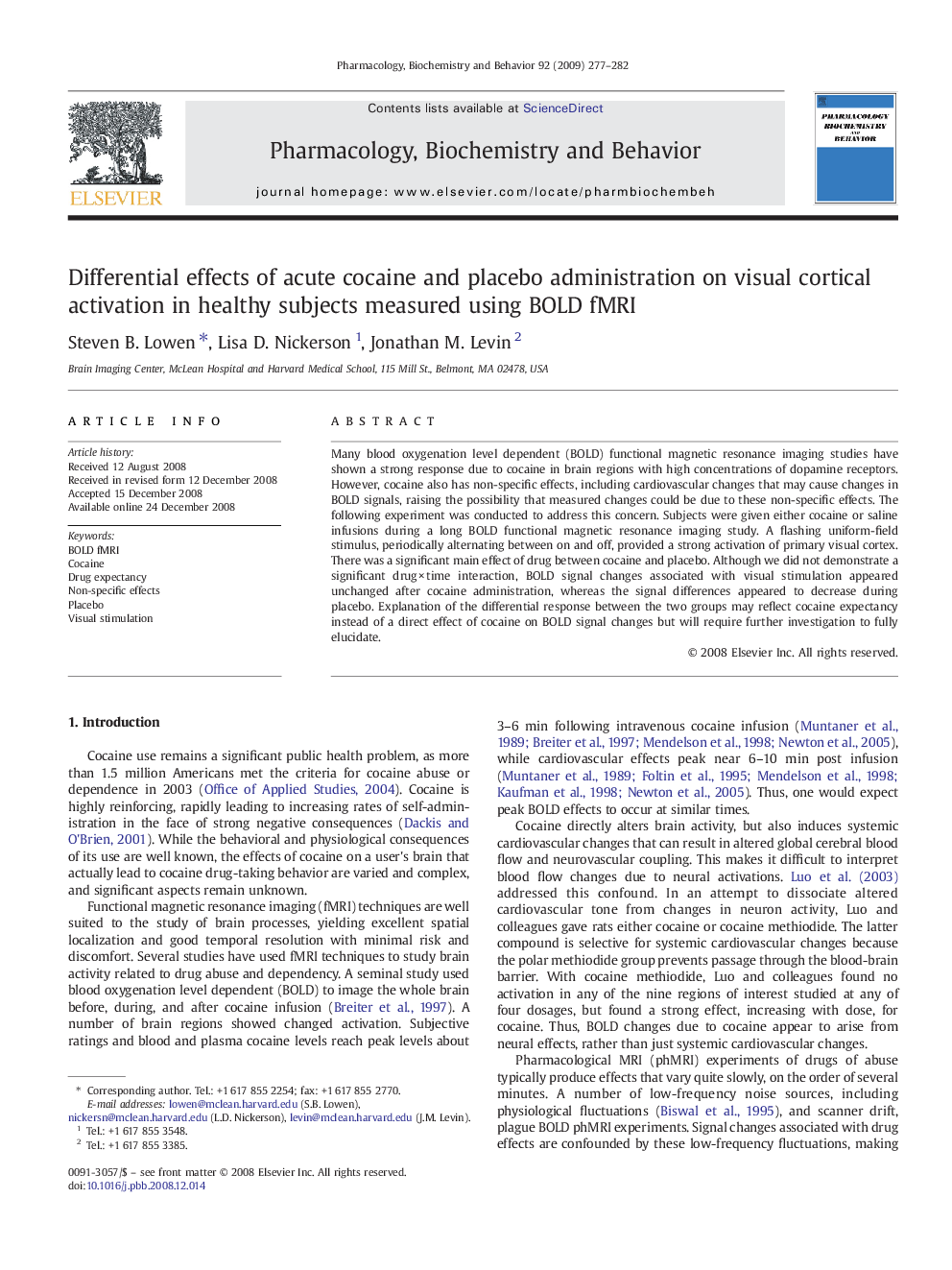| Article ID | Journal | Published Year | Pages | File Type |
|---|---|---|---|---|
| 2013712 | Pharmacology Biochemistry and Behavior | 2009 | 6 Pages |
Many blood oxygenation level dependent (BOLD) functional magnetic resonance imaging studies have shown a strong response due to cocaine in brain regions with high concentrations of dopamine receptors. However, cocaine also has non-specific effects, including cardiovascular changes that may cause changes in BOLD signals, raising the possibility that measured changes could be due to these non-specific effects. The following experiment was conducted to address this concern. Subjects were given either cocaine or saline infusions during a long BOLD functional magnetic resonance imaging study. A flashing uniform-field stimulus, periodically alternating between on and off, provided a strong activation of primary visual cortex. There was a significant main effect of drug between cocaine and placebo. Although we did not demonstrate a significant drug × time interaction, BOLD signal changes associated with visual stimulation appeared unchanged after cocaine administration, whereas the signal differences appeared to decrease during placebo. Explanation of the differential response between the two groups may reflect cocaine expectancy instead of a direct effect of cocaine on BOLD signal changes but will require further investigation to fully elucidate.
